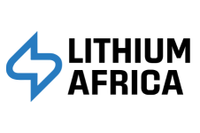The inflationary pressure that has resulted in the increased cost to produce lithium may partially be attributed to restrictions on exports of raw materials from China. The World Trade Organization said on Tuesday that the Chinese government broke international law when it restrained exports of some raw materials.
Lithium prices have continued to climb, as inflationary costs escalate with impacts on the production for a number of critical companies in the industry. On July 1st, Chemetall Foote the lithium subsidiary of specialty chemicals and materials producer Rockwood Holdings Inc. (NYSE:ROC) hiked lithium prices up to 20 percent on several products as the result of increased costs for energy, raw materials, solvents and transportation.
The Princeton, New Jersey parent of Chemetall has said price increases will affect lithium metal battery grade and several lithium salts, including lithium carbonate, lithium hydroxide and lithium chloride. The company also will implement and update surcharge premiums due to requirements in different global markets.
According to Rockwood, “the increases will return prices on lithium carbonate and lithium hydroxide to 2008 levels.” The company also hopes that these higher prices will also help Rockwood boost global production capacity. The company will host a conference call for its second quarter earnings at the end of this month.
Following the news release of the lithium price increase the shares for the parent company have surprisingly climbed 23 percent to approach the $58.49 trading range despite a bearish note published on the Motley Fool and the disclosure of several insider stock sales from executives.
Following suit
Towards the end of last month FMC Corporation (NYSE:FMC) announced that effective on July 1, it would increase prices 20 percent for lithium carbonate and between 15 and 25 percent, depending on product grade, on a field of lithium products, including lithium battery metal, lithium chloride, lithium hydroxide and specialty lithium salts.
Global Commercial Director for FMC Lithium, Eric Norris said, “This price increase is necessary to support continued investment in our operations as well as to offset cost increases for raw materials, transportation and energy.”
For FMC this represents the second consecutive price increase for lithium products within three months. Since the announcement of the price increase the company has paid out dividends to shareholders and received some bullish commentaries which have helped to increase the share price 7 percent.
Upstream developments and downstream impacts
The inflationary pressure that has resulted in the increased cost to produce lithium may partially be attributed to restrictions on exports of raw materials from China. The World Trade Organization said on Tuesday that the Chinese government broke international law when it restrained exports of some raw materials. In the past, complainants have argued that the use of export impediments create artificial scarcity and cause pricing pressures of the raw materials in global markets. They also neutralize the global free market trade by protecting Chinese domestic industries with considerable sourcing advantages by way of a sufficient supply, and lower and more stable prices for the raw materials. China is most likely to appeal the latest verdict on trade policies that are also likely employed by other countries, such as India, to encourage growth of their domestic industries. India is the home of Tata Chemicals, the world’s second largest producer of soda ash which is an important component in the production of lithium from brine sources. The price of soda ash in Asia is anticipated to increase in the short term, driven by soaring raw material costs, and with demand likely to intensify over the summer with supply shortfalls. Climbing fuel costs will also have strong effects on the overall lithium production and distribution as transportation becomes marginally more expensive.
These new pricing developments are important for investors to observe as the two companies combined represent over 30 percent of global lithium production capacity. With the three primary uses of lithium by industry sector including a broad spectrum of industrial and consumer electronic products it is impossible to know where these inflationary costs will first impact consumers. Most recent estimates indicate the primary consumers of current lithium production to be ceramics and glass manufacturing at 31 percent, batteries at 23 percent and greases 10 percent. Consumers should eventually see these impacts on many products which are not as obvious such as air conditioning, car tires, rubber soles and plastic bottles to intermediates in the pharmaceutical industry and flavour and fragrance synthetics.





